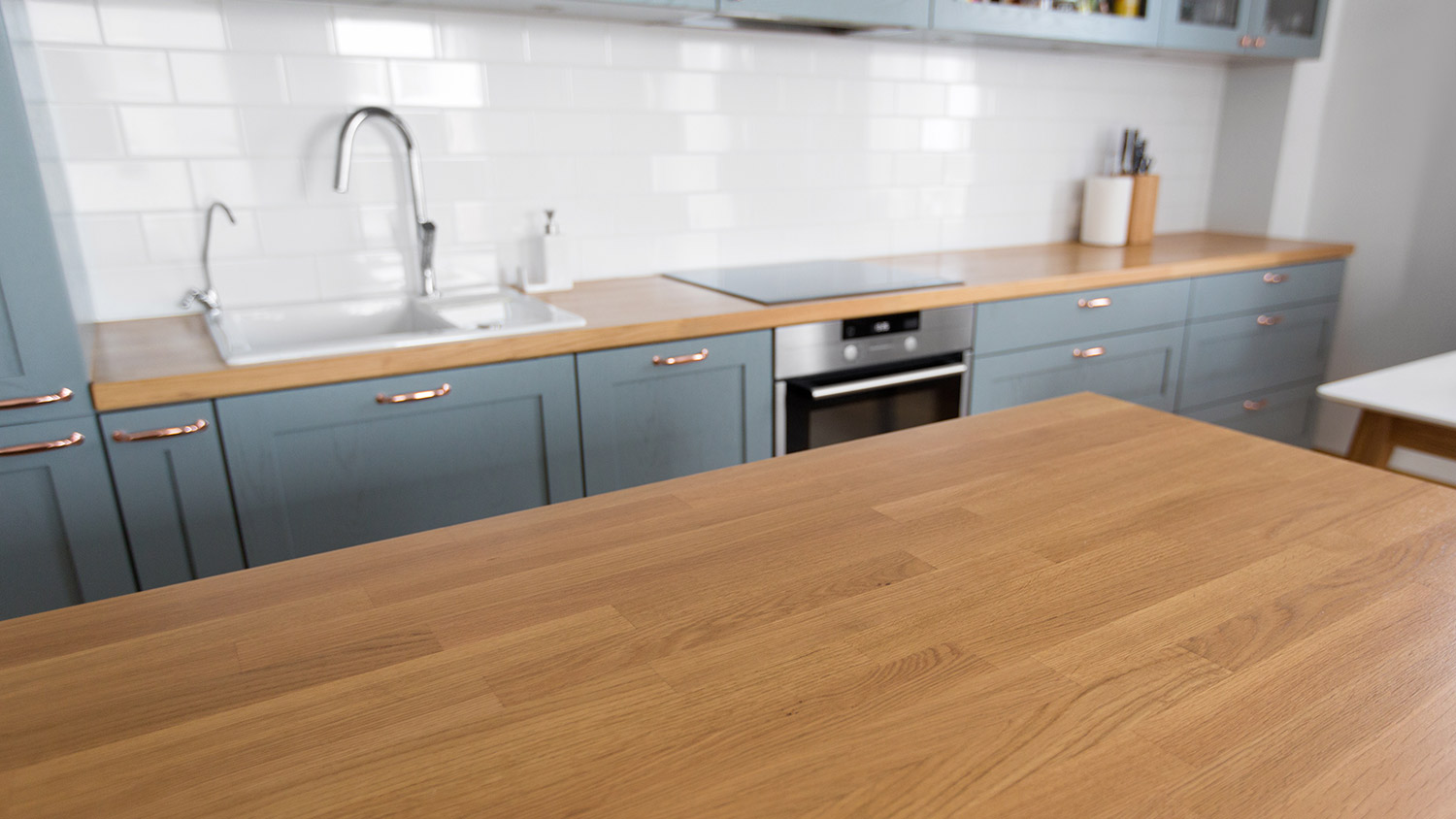
Use this guide to budget for kitchen island costs, including island style and shape, customizations, countertop options, professional labor, and more.
Porcelain countertops cost an average of $2,900 to install


Porcelain countertops cost an average of {AvgCost}, ranging from $1,500 to $3,800.
Factors influencing cost include materials, labor, custom work, cutouts, and additions like kitchen islands.
Porcelain countertops are durable, heat-resistant, and low-maintenance.
Hiring a professional installer ensures precision and reduces the risk of damage.
This article was updated using automation technology and thoroughly reviewed for accuracy by HomeAdvisor Editor Ryan Noonan.
Most homeowners spend between $1,500 and $3,800—or an average of $2,900—on porcelain countertop installation, including materials and professional labor. If you're considering a DIY project, costs can start as low as $750, while custom work in larger kitchens may exceed $8,000. The total price depends on your project's size, materials, labor rates, and add-ons. Hiring a professional countertop installer ensures a seamless fit, cut, and sealing, enhancing the durability and appearance of your countertops for years to come.
The cost to install porcelain countertops depends on several factors, including their size, material costs, labor rates, permits, and add-on features.
Installing porcelain countertops costs between $50 and $70 per square foot, including materials and labor. While labor costs can vary by region, the price of porcelain slabs remains relatively consistent nationwide.
Expect to pay between $20 and $65 per square foot for the porcelain slabs themselves. Since porcelain countertops are relatively new to U.S. markets, they aren't commonly found as off-the-shelf options. Your contractor will often order custom large-format slabs specifically for your project.
Labor for installing porcelain countertops costs $10 to $20 per square foot. Because porcelain slabs are thin and require special care during fabrication and installation, labor costs can sometimes be as much as double the material costs. Prices vary by location and installer, so it's wise to contact a local countertop professional.
Fabrication requires completely different tooling and expertise than traditional countertop fabrication of granite, marble, or quartz, requiring you to find an installer specializing in porcelain installations.
Permits for kitchen remodels cost between $50 and $500, depending on your location. You won't need a permit to replace countertops unless you alter the kitchen layout or modify structural components like walls. If permits are required, your contractor should handle the permitting process.
Custom work, cutouts, and size affect the total cost of your porcelain countertops. Cutouts add $100 to $200 each, and edges are not cut on-site due to the porcelain fabrication process, as they are usually ordered with eased edges included in the fabrication price. Adding an island can double the counter space and significantly increase the cost.

Although DIY installation might seem cost-effective, porcelain countertops require precision, and there's a high risk of breakage during installation. Working with a porcelain countertop pro ensures precision and minimizes the risk of damaging the fragile porcelain slabs during installation. Experienced porcelain fabricators use special techniques and blade angles to work correctly with this material, making it almost impossible for a regular homeowner to get it right without professional assistance.
Contact a local porcelain countertop professional today to get started on your project!
No place is more important than your home, which is why HomeAdvisor connects homeowners with local pros to transform their houses into homes they love. To help homeowners prepare for their next project, HomeAdvisor provides readers with accurate cost data and follows strict editorial guidelines. After a project is complete, we survey real customers about the costs to develop the pricing data you see, so you can make the best decisions for you and your home. We pair this data with research from reputable sources, including the U.S. Bureau of Labor Statistics, academic journals, market studies, and interviews with industry experts—all to ensure our prices reflect real-world projects.
From average costs to expert advice, get all the answers you need to get your job done.

Use this guide to budget for kitchen island costs, including island style and shape, customizations, countertop options, professional labor, and more.

Check out this guide to discover how much soapstone countertops cost to install based on their size, location, edging, and labor fees.

Budget for quartz countertop costs based on factors such as material quality, edge treatment, labor, leveling, existing countertop removal, and more.

Looking to enhance the warmth and utility of your kitchen? Explore how much a butcher block countertop costs and start your budget here.

Who can install butcher block countertops? Learn whether a countertop contractor, finish carpenter, or GC is right for your project, plus steps and costs.